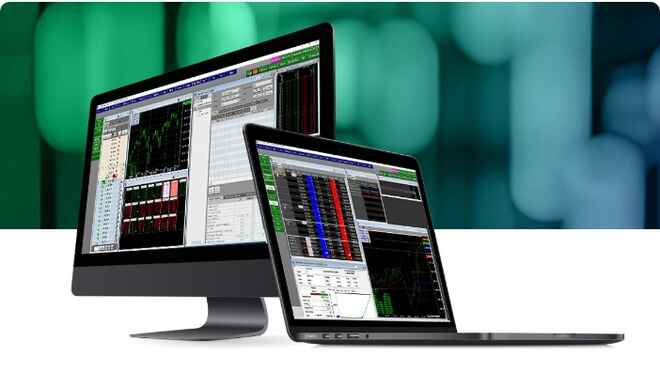If you’ve been trading in the market for awhile, you’ve likely considered the possibility of moving into futures. Because they offer myriad benefits that traditional equities trades can’t match — and the possibility of earning significant returns quickly — it’s natural to wonder if trading futures is right for you.
Yet it’s also critically important to understand how trading futures differs from trading stock shares. Without a firm understanding of these differences, it’s impossible to devise an optimal futures trading strategy.
To help you determine whether futures trading is right for you, let’s take a closer look at how it diverges from conventional equities trading and the core advantages that it offers.
Futures Trading Basics
Futures differs from traditional stock trading in that you’re not trading shares — you’re trading contracts to buy or sell an asset at a specific point in the future. These contracts typically involve physical commodities (such as gold or oil) or financial instruments. The goal is to accurately predict the direction that the asset’s price will move in a certain period of time.
As stated above, trading futures differs significantly from trading equities. One of the primary reasons why seasoned traders gravitate toward futures is the concept of leverage.
When making a futures trade, an investor typically puts in a margin, which is a fraction of the overall value of the contract (often around 10-percent). This margin covers the investor in case the market moves against the position that was taken. Should this move exceed 10-percent, the investor must add more money.
Leverage also, however, allows investors to increase profits or losses much faster. For example, if an investor has $10,000 to put into the market, he can choose to buy 100 shares of a stock valued at $10,000. Or, alternatively, he can choose to buy a futures contract holding 1000 shares of that same stock (remember, only 10-percent of the total value of the contract is required).
Because the futures contract offers ten times the exposure to the stock in question, any profits will also be ten times greater. While there is also risk should the market move in the wrong direction, this can be mitigated to some degree by the use of stop-loss orders.
In addition to leverage, there are some other notable attributes that make futures trading a natural choice for some investors.
Taxes
Futures are taxed differently than conventional stock trades and, in fact, are covered under an entirely separate section of the IRS tax code.
Futures trades are taxed under a 60/40 split, meaning that 60-percent of the contract falls under the long-term capital gains rate while 40-percent falls under the short-term rate. This combined rate is significantly lower than the standard short-term capital gains rate.
Liquidity
Because futures contracts are traded in such large numbers, they offer investors exceptional liquidity. Even larger contracts can typically be moved with minimal price disruption, and market orders can typically be executed quickly. Most futures markets are open virtually around the clock, which means that traders can seize opportunities as they unfold — a significant advantage over being compelled to wait for the stock market’s opening bell.
Hedging or Diversification
Futures contracts are a primary mechanism by which professional traders and large firms minimize their exposure to other positions and hedge against future changes. Buying a futures contract allows a trader to lock in a particular commodities price or interest rate, for example.
It should be noted that while futures can be used to limit the potential downside of market fluctuations, this strategy can also reduce profits.
Fees and Capital Requirements
While the cost of a futures trade depends on the level of service provided, fees tend to be highly competitive.
Additionally, futures traders are not federally mandated to have a large capital reserve — unlike stock day traders who must maintain at least $25,000 in their account. A futures trader’s account size is relative to position size.
Are You Prepared to Trade Futures?
Given the advantages above, it’s no surprise that retail futures trading continues to grow in popularity. Yet because futures are a powerful investment tool, it’s imperative that you’re fully prepared before moving forward.
To help gauge whether you have the base understanding of futures trading and whether it might be an investing channel that is right for you, ask yourself the following questions:
- Am I familiar with both technical and fundamental analysis?
- Do I have a well-developed trading plan or process to follow?
- Do I understand the fundamental concepts behind trading futures?
- Will I be able to control my emotions and prevent them from compelling me to pursue suboptimal trading decisions?
- Am I sufficiently capitalized?
- Am I a strong money manager?
If you’re answering in the affirmative to questions such as these, there’s a strong chance that you’re ready to enter the futures market. Contact an RJO Futures broker today to discuss the various trading accounts offered to see which service fits your trading knowledge level.

